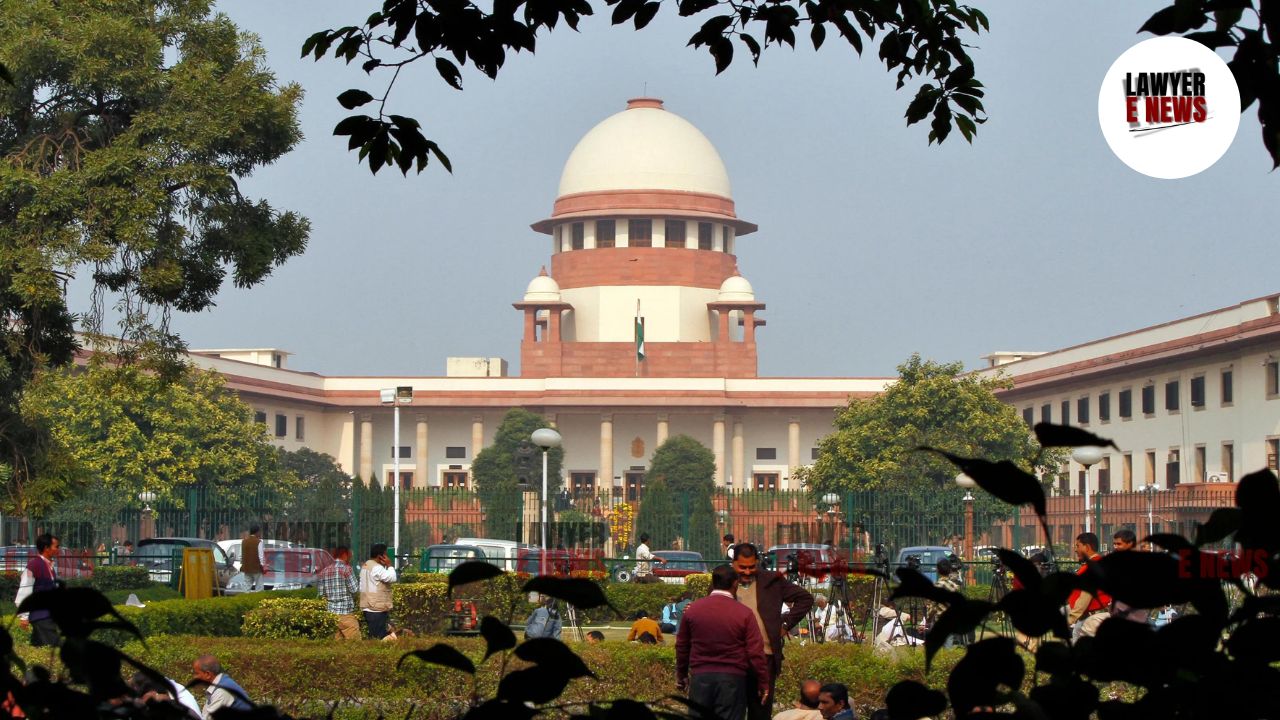-
by Admin
15 February 2026 2:36 AM



Supreme Court of India declared two ex-parte arbitration awards issued in favor of Respondent R.K. Pandey as null and void. The Court held that the awards, passed in the absence of a valid arbitration agreement, lacked jurisdiction and violated core principles of fairness and party autonomy under the Arbitration and Conciliation Act, 1996 (A&C Act).
The case, State of Uttar Pradesh and Another v. R.K. Pandey and Another, addressed issues of fraudulent arbitration proceedings, unilateral appointments of arbitrators, and the applicability of objections under Section 47 of the Code of Civil Procedure, 1908 (CPC). The ruling emphasized that arbitration relies on the existence of a valid arbitration agreement, mutual consent, and adherence to procedural requirements.
The dispute originated from Respondent R.K. Pandey's retirement as a lab assistant from a state-run hospital in 1997. Pandey contested his retirement age, claiming he should have retired at 60 instead of 58, based on service rules applicable to employees of the Municipal Board of Kanpur, which previously managed the hospital. After filing a writ petition in 1997, Pandey withdrew it in 2009 without obtaining relief.
Despite this, Pandey initiated arbitration proceedings in 2008, citing an alleged arbitration agreement purportedly signed in 1957 between the Municipal Board of Kanpur and the Government of Uttar Pradesh. He unilaterally appointed two arbitrators—Advocates Pawan Kumar Tewari and Indivar Vajpayee—who passed ex-parte awards in his favor, granting him Rs. 26,42,116 and Rs. 20,00,000, respectively, with significant interest.
The State of Uttar Pradesh challenged these awards, contending that no valid arbitration agreement existed between the parties and that the proceedings were fraudulent. While their objections under Section 34 of the A&C Act were dismissed as time-barred, the appellants raised issues of fraud and jurisdiction during execution proceedings under Section 47 of the CPC.
The Supreme Court emphasized that a valid arbitration agreement is a mandatory precondition for arbitration proceedings under Section 7 of the A&C Act. In this case, the alleged arbitration agreement dated April 1, 1957, was neither acknowledged by the State Government nor reflected in official records. The Court observed that Respondent Pandey failed to produce the original agreement and instead relied on an unauthenticated copy, raising doubts about its legitimacy.
"Arbitration fundamentally relies on the principle of party autonomy. The existence of a valid arbitration agreement is a prerequisite for an enforceable award," the Court stated.
The Court also noted that the purported agreement allowed only the Municipal Board and the State Government to invoke arbitration, not Pandey. The unilateral appointment of arbitrators by Pandey violated the terms of the alleged agreement.
The Court found the arbitration proceedings to be a sham, orchestrated by Pandey to secure an illegal advantage. It observed that Pandey unilaterally appointed arbitrators, bypassing the legal requirement of mutual consent.
Citing Central Organisation of Railway Electrification v. ECI PIC SMO MCPL (2024), the Court reiterated that arbitration must adhere to principles of fairness and impartiality. Arbitrators are expected to maintain standards akin to judicial officers, ensuring independence and neutrality. The unilateral appointments in this case violated these principles, rendering the awards invalid.
"Unilateral appointments of arbitrators undermine the integrity of arbitration and breach the fundamental standard of impartiality," the Court held.
The Court upheld the appellants' right to raise issues of fraud and jurisdiction during execution proceedings under Section 47 of the CPC. It ruled that fraudulent awards, even if not challenged within the limitation period under Section 34 of the A&C Act, can be contested at the execution stage.
Fraud and justice never dwell together. Fraudulent awards lack jurisdiction and are unenforceable in law," the bench observed, citing Bilkis Yakub Rasool v. Union of India (2023).
The Court stressed that arbitration awards must be passed within the framework of the law. In this case, the awards were a result of fraudulent proceedings and lacked subject matter jurisdiction.
The Supreme Court allowed the appeal, setting aside the two ex-parte awards dated February 15, 2008, and June 25, 2008. It declared the awards null and void, rendering them unenforceable. The execution proceedings initiated by Pandey were dismissed, and costs were awarded to the appellants.
The Supreme Court's ruling in this case underscores the sanctity of arbitration as an alternate dispute resolution mechanism. It emphasizes that arbitration must be grounded in valid agreements, mutual consent, and procedural fairness. The decision also highlights the Court's intolerance for fraudulent practices, ensuring that arbitration proceedings are not misused for personal gain.
This judgment is a significant precedent in protecting the integrity of arbitration and ensuring adherence to the rule of law.
Date of Decision: January 9, 2025
